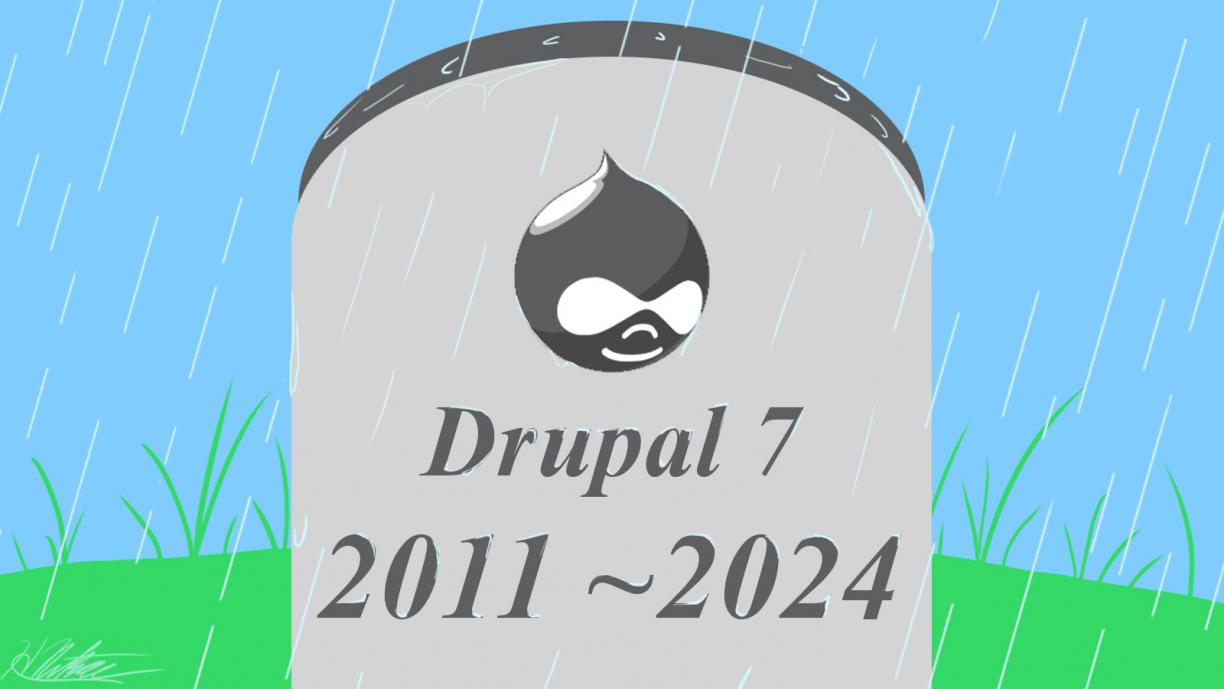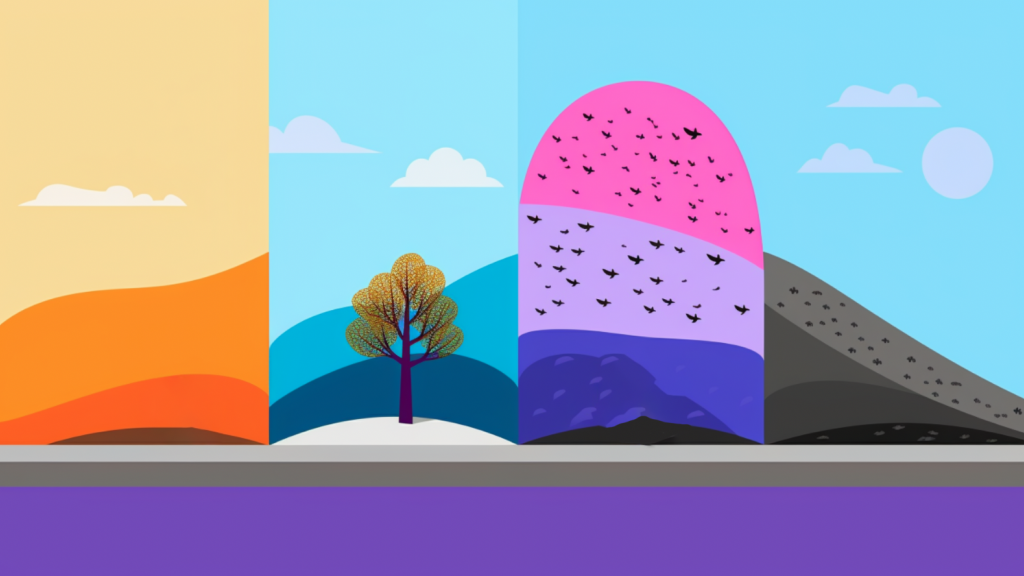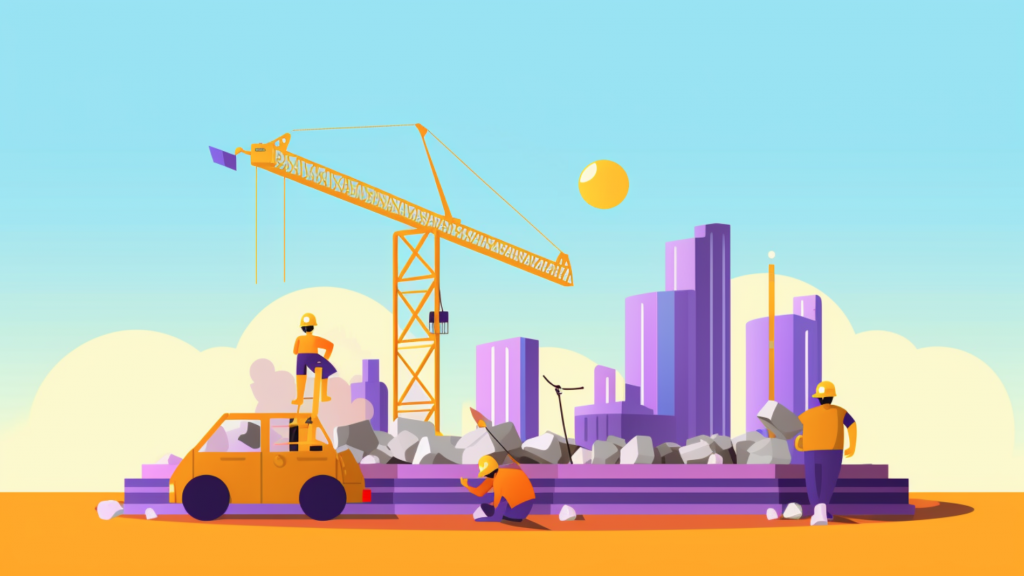
Drupal 7 is reaching its end of life in January 2025, which means no more updates or security patches will be issued. If you haven't already, now is the time to think about upgrading to Drupal 10 to keep your web presence functional, beautiful, and most importantly, secure.
I interviewed one of our top Drupal experts, Andrew, about what this all means and how to think about moving forward. If you start planning your migration strategy now, you'll have ample time to avoid any last-minute hassles 👍.
Table of Contents
Background
N: Good afternoon. Who are you and what’s your role at Mythic? How long have you been with us?
A: My name is Andrew Stowell, and I am the Director of Engineering at Mythic Digital, and I've been here for about a year and a half now.
N: Excellent. And how long have you been working with Drupal specifically?
A: Oh, that's a great question. Somewhere around five or six years.
N: And just for the uninitiated out there, what is Drupal anyway?
A: Yeah, so Drupal is a content management system that is very developer friendly, very enterprise focused, and really allows us to build feature-rich websites and applications to help support businesses of all types.
N: How is Drupal different from WordPress or other content management systems?
A: Feels like a very loaded question. Drupal really focuses on content models when it comes to content.
And I think that's really its strong suit - structured data - inputting and getting data out of Drupal, whether it's just a marketing website that needs a lot of components with certain structured data, or whether it's building an application and users need certain data or building an API...all of which are fully feasible in Drupal.
I think those are really some of Drupal's strongest points.

Drupal 7 End of Life
N: Our main topic today is Drupal 7's end of life. So the first question about that is: when is the official Drupal 7 end of life?
A: Drupal 7’s end of life is January 5, 2025, 14 years to the day after it came out, which I didn't realize until I was doing some research for this interview.
And then I had to look up some interesting things that were going on in 2011 to kind of bring me back to that time.
So 2011 was the year of the royal wedding. The first one that the whole world tuned in. The final Harry Potter movie came out, and Charlie Sheen came out with his tiger blood thing and kind of exploded in front of everyone. And then also Friday by Rebecca Black was released.
So it was a big year.

N: A very big year indeed. I heard something about the end of life date being extended. Do you think that will happen again?
A: Yeah, it has been extended a couple of times now. It was originally scheduled for November of 2021, but then COVID hit and the Drupal community saw that it was going to have a really big impact on businesses across all sorts of sectors.
And the required effort to upgrade to Drupal 8, which was the current next version at that time, was a big effort. They wanted to be a little bit nicer to the community and extend that. So they extended it until November of 2023. And their plan was to review that annually.
So there was no concrete end of life. And that was up until just a few months ago when the Drupal maintainers finally came out and said that Drupal 7 will be “end of life-ing” in 2025, and they'll not be extending it again for a third or fourth time.
N: Okay, so this really is the end.
A: This is the end.
N: And what does end of life mean exactly? Can you put it into more layman's terms?
A: Yeah. So end of life really means that it's no longer going to be supported by the Drupal community. Drupal, being an open source software, exists because of contributions from those within those in the community, typically for free.
Some big contributors are sometimes sponsored by companies, so they get paid to contribute to Drupal. But Drupal as an organization does not pay anyone.
So what the end of life means is that there won't be any more feature updates, there won't be any more bug fixes, but most importantly, no more security updates.
The Drupal community has a really strong security team that has some very strict processes in place to track reported security issues, get those fixed, and have them released in a timely manner while also coordinating with any other third parties that might have to.
So if there's other systems or open source software that we rely on, that needs to be fixed as well, they coordinate that. What that really means is your site is potentially vulnerable for security issues because they are no longer being looked at, reviewed or disclosed by the security team.
So your site will still work - you can still update your content and kind of exist with it - but it starts to become riskier and riskier the longer the sites exist after the end of life with no security updates.
N: I see. So it's definitely something that those who are using Drupal 7 would want to pay attention to.
A: Absolutely.
N: And slightly related to that...in your estimation, do a lot of companies and organizations still use Drupal's version 7?
A: They really do, which has created a very big divide in the community. Drupal really took a shift going from 7 to 8 and then beyond, in how they were structured, and what the expectations of developers were previous to version 8.
It was very…I'll call it “tinkerer-friendly.”
You could certainly build complex and efficient websites and web applications and there are certainly plenty of them built. The WhiteHouse.Gov site was built on Drupal 7 at one point during Obama's years. But with the transition to 8 and all the changes that came with that, it became much more enterprise-focused.
So, the entry level for developers was much higher just in terms of skills needed to properly maintain it. As a result, a lot of companies are still on Drupal 7 because of such a large cost to move.

Drupal publishes their weekly installs of the Drupal versions. Numbers aren't, of course, exact or anything, it's just websites that have self reporting turned on, essentially, but it gives us a pretty good idea.
And there are still 383,000 websites on Drupal 7, which is a lot. In fact, that is more than Drupal 8, 9 and 10 combined right now.
N: Quite a statistic.
A: That's so many. A lot. It's a higher number than Drupal 9 and 10....combined. Drupal 8, which is also end of life according to the Drupal self-reported install numbers, is still at 88,000 as well.
So Drupal 8 has been at the end of life for two years now at this point. This November will be two years and there's still 88,000 websites on it. And the upgrade from 8 to 9 is much simpler than 7 to 8.
So I expect to see even higher numbers two years after end of life that still exist on Drupal 7.
Moving Ahead
N: And for those who are currently still using Drupal 7, what are some important considerations in planning to upgrade to Drupal 10?
A: Some of the biggest considerations are around how you’re going to migrate your whole site. Essentially, the Drupal community has put a lot of effort into trying to make this a seamless process, seeing those really large numbers of Drupal 7 existing sites installs.
So a few years ago it was essentially a full site rebuild where you had to start from scratch and rebuild all your content models, refigure out what contributed modules from the community you might need or may not exist anymore that you were using on Drupal 7, or figure out if things are done differently.

They have made that a little bit easier with having a lot of processes and command line tools in place to upgrade to those, but it is still a really big effort to upgrade to Drupal 10.
So I think the biggest consideration is making sure that you know what you want, because you're going to be putting in a lot of effort.
Really, if there are any changes that you're going to want to do, now is the time to do them and truly have a solid plan going into it - knowing what works for your website and what doesn't work.
N: It sounds like now is a big time for deep thinking and planning, in terms of web maintenance and what kind of presence you want to have.
A: Absolutely.
N: Here’s another one for you. Will future upgrade processes to yet-to-exist versions of Drupal (like 11 or 12)...will they be as cumbersome as some of the other ones you've described today?
Hopefully not. The transition from Drupal 7 to Drupal 8 was a complete restructuring of how Drupal works. And the phrase that's commonly used is called, "getting off the island."

So we, being the Drupal community, no longer used fully Drupal specific setups for just how the website runs and exists and functions.
And starting with Drupal 8, we started using another open source software called Symphony, which is more of a framework than a content management system, and we essentially take that and turn that into the Drupal CMS, kind of extending it where we see fit, obviously lots and lots of customizations.
But that's the major reason why it's such a big effort to change, because the engine that drives Drupal is completely different from 7 to 8. So going forward, the plan is to continue to remain on Symphony as the core engine to Drupal.
So it should be much easier to upgrade to these major versions. There'll always be code and functionality that's deprecated or removed, that's much better at being documented.
There are systems in place at getting that marked as being deprecated, like two major versions ahead, and then it remains deprecated through the next version, and then it finally gets removed in the version after that.
So people have a lot of leeway ahead of time to know any big changes that are coming out, and hopefully they won't have to swap out the engine of Drupal again. But never say never.
N: Never say never. Those are good words to live by.
So let's say I'm a website manager and our site runs on Drupal 7 right now. It's September, 2023. Do I need to be thinking about something that's going to happen in January of 2025 right now? How long does this process typically take?
A: Yeah, that's a really great question. It depends a little bit on your site and how complex your website is. It could take anywhere from three months to a year to migrate to a newer system, depending on how much functionality needs to be rebuilt from scratch.
Or if it's just a simple marketing website with just some basic content on it, that certainly falls into the lower end (a three month rebuild) - versus a year-long one where you might need to build a lot of complex functionality, if a site has been around a while.
N: The short answer is, it depends. That was a very helpful range and detail. Thank you.
I saw in my reading for this that Drupal has a lot of DIY resources for those who want to try to go about handling the migration themselves. Do you have any thoughts about doing it yourself versus hiring an agency? And how would a team like ours here at Mythic go about helping a client go from Drupal 7 to 10, in broad strokes?
A: Yeah, so I always recommend hiring professionals, especially when it's something as important as your website for your company.
You don't want to make any wrong choices that could negatively affect you down the road. And with the web, as so much technology is, if you don't live it every day, your information can get out of date really fast, or you may just not know where to start or what resources to trust.
And going to experts - we know who to trust. We've seen a lot, we've done a lot. We're surprised by very little at this point. So broad strokes of how we accomplish that: whether you're an existing client or a new client to us is first, we just kind of understand what exists currently for you right now.
We want to know - what does your website do? How does it function? How do you use it in the back end? What are your expectations from the website?
And then once we have that understanding, then we'll do an assessment, (and there's some great tools out there that give us a really high level understanding of what modules exist for the next version of Drupal that we'd move you to) or what we would need to rebuild from scratch and what would need to change for Drupal 7 to 10.
It's pretty much everything. Very little has remained consistent between those.
N: Well, thinking about a year as the top of the range there, it's good that we're talking about it now.
A: Indeed, it is.
Take just one step to start
N: So, last question, Andrew. In thinking about Drupal 7 end of life, what's one action that someone could take as a start if they haven't begun this process yet?
A: I think a great first step is figuring out what's important to you with your website. That will be the first question any good agency will ask you.
Determining what works for you, what you like, what you expect out of it. Agencies don’t work within a customer's website every day, using it like they are.
So being able to articulate or document what those workflows are and how you use it, I think is one of the most helpful things to upgrading a website.
N: That was really insightful. Is there anything else you wanted to add during our time together, Andrew?
A: No, I can't think of anything. Thank you so much.
💧 Read the Drupal Association's D7 end of life public service announcement.
🦄 Book a meeting with our Managing Director, Nichole, if we can be of service!